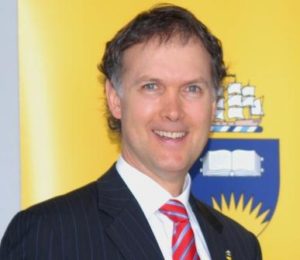
Addressing the number of health professionals prepared and equipped to work in under-resourced areas to help eradicate crises such as the Ebola epidemic is a key focus of the Global Community Engaged Medical Education Muster this week.
The Muster will be held until Thursday (October 30) at Ayers Rock Resort, Uluru.
Hosted by Flinders University and the Northern Ontario School of Medicine, the Muster will bring together health professionals, educators, students and researchers from all parts of the world to share experiences, opportunities, and the challenges of community participation in medical education.
The launch of the World Health Organisation’s (WHO) global health kit by Dr Erica Wheeler will be a key highlight of the Muster. The toolkit, based on evidence that includes research undertaken at Flinders University and the Northern Ontario School of Medicine, will feature a range of resources to help policy makers and practitioners plan and manage improvements in their health workforce to help meet WHOs goal of universal health coverage.
Dean of the Flinders University School of Medicine, Professor Paul Worley, said the launch of the WHO toolkit is about helping to ensure there is not only an adequate number of health professionals globally, but that the health professionals have undertaken appropriate medical education to prepare them to work in areas with limited or no access to adequate health resources.
“It is about recognising that the world is at least three million health professionals short. A graphic example of the global effect of this shortage is the Ebola crisis,” Professor Worley said.
“Ebola is a crisis of poverty, a crisis of infectious diseases, and it is also a crisis of health workforce. Yes, we need to get economies right, and yes, we need immunisations and other such approaches, but we also need to get the health workforce right,” he said.
“These West African countries just don’t have the resources, and are therefore struggling to control the epidemic. As a result, the risk on a global scale is continuing to increase.
“Part of our response is the acute, quick-fix, but our long-term response has to be making sure that the world has an adequate health workforce – and that’s what the Muster conference is about.”
Professor Worley said the world doesn’t simply need more of the same education: what is required is a transformative approach.
“We need to train health professionals who are prepared and equipped to work in under-resourced areas. Otherwise we will further exacerbate the divide between rich and poor,” Professor Worley said.
“The Muster is about transforming our approach to health and medical education globally so the Ebola crisis won’t happen again. Creating more doctors alone won’t change the world’s health insecurity, but facilitating the exchange of dialogue between health and medical education experts throughout the world will help to address world health security.
“It may have a long lead time, but the long-term impact of a conference such as the Muster will be significant.”

